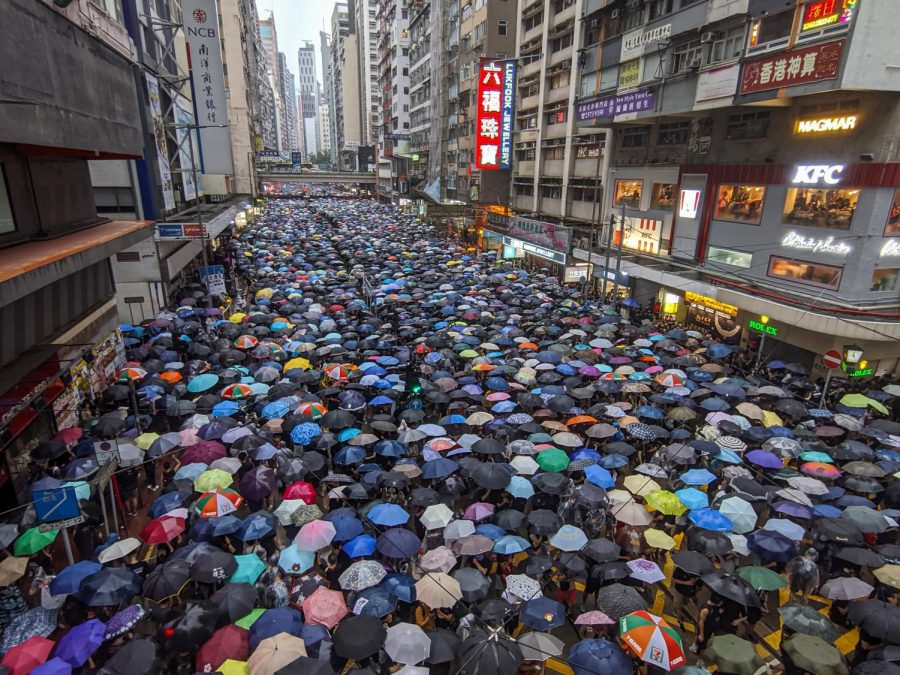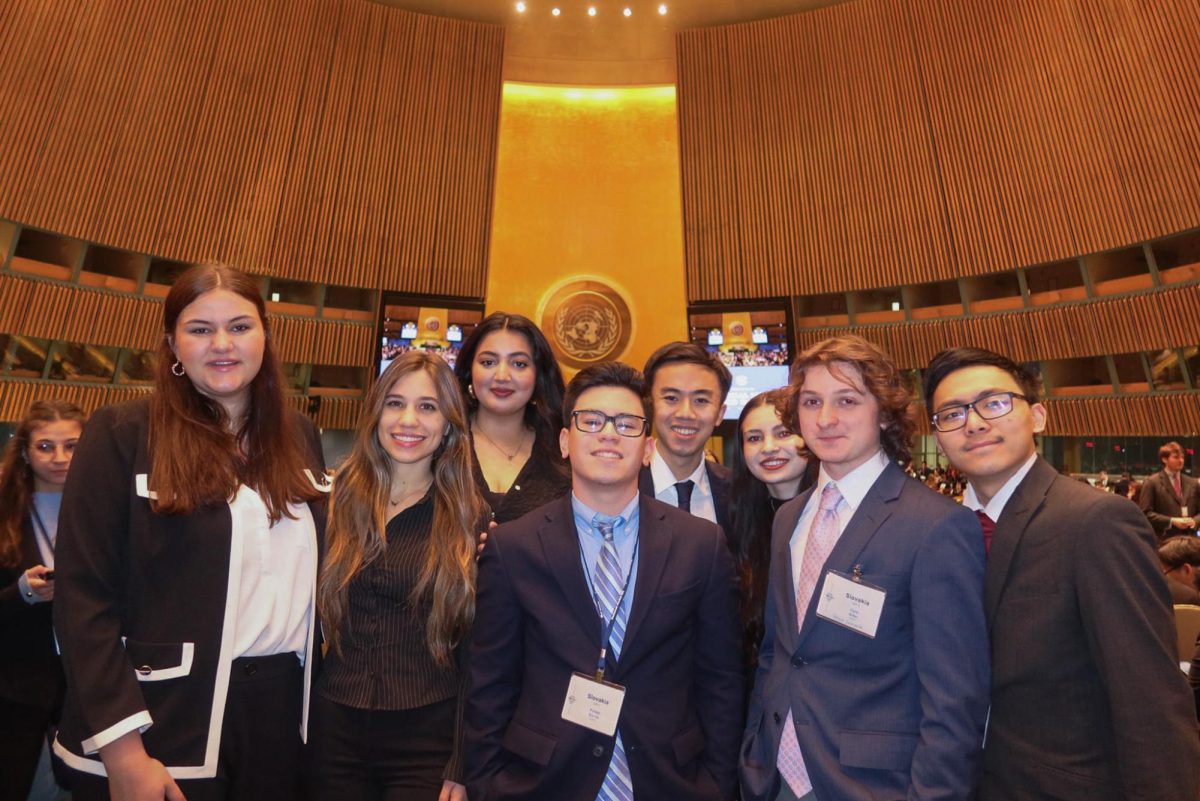In early June 2019, protests broke out in the enclave city of Hong Kong. What started out as a movement to prevent the passing of the controversial Extradition Bill has reignited the flame for democratic reform.
Clashes between protestors in Hong Kong and Beijing-backed police have endured for months, with little ground gained for either side, all while the rest of the world sits back and watches.
Hong Kong, officially known as a Chinese special administrative region, is comprised of 7 million inhabitants and sits on a peninsula on the southeast coast of China. China, a rising superpower, routinely flexes their military muscle, moving armored troops to the border and flying military jets over the city in an attempt to dishearten protestors.
Yet, this looming threat of conflict has not stopped hundreds of thousands, sometimes even millions of Hong Kongers from taking to the streets to protest the actions and policies China plans on instituting. There have been countless protests over the past months, some peaceful, some violent. However, one thing is for certain, neither side is backing down anytime soon.
Hong Kong, a former colony of the British Empire was returned to the Chinese in 1997. Though technically not its own country, Hong Kong has its own currency, language and issues its own passports. These cultural and economic differences resulted in an agreement where Hong Kong could retain some autonomy for 50 years before fully integrating back into China in 2047.
In late March 2019, Beijing-appointed candidate and current leader of Hong Kong, Carrie Lam, introduced the Extradition Bill on behalf of the Chinese government. This bill stated that any criminal in Hong Kong could be sent to China for prosecution.
Suffolk University Professor Ronald Suleski is a historian that has covered matters all over East Asia. He’s served on the National Committee of U.S.-China relations, written countless articles, books and journals regarding issues in the region and even lived there for a considerable amount of time. Suleski’s immense knowledge of the situation allowed him to illustrate potential ramifications of Lam’s Extradition Bill.
“China does not have a functioning legal system,” said Suleski. “Once you are arrested by Chinese authorities, you have no rights. You may or may not get a lawyer. You may or may not get a trial. You may be arrested and just disappear.”
Being found innocent is not common in Chinese courts. The Washington Post and The Telegraph reported that in 2014, out of the 1.2 million people convicted of crimes, only 1,039 people were found innocent – that’s about 0.08%.
“China could say ‘this student who is having these public rallies speaking against the government is a criminal.’ In fact, that is what they are saying in their newspapers in China now. It means the Hong Kong government could take just anyone and turn them into China and they’d disappear.”
China is infamous for censorship from the media. Despite being in the Internet Age, the government blocks over 10,000 websites including Google, Twitter, Reddit, Wikipedia, and virtually all social media and Western news sites.
“People in China don’t know about it,” Suleski said. “All they know is that some wild kids in Hong Kong are throwing firebombs at policemen. They don’t realize there are thousands and thousands of protestors.”
Even the widely known Tiananmen Square Protests of 1989 are taboo in mainland China. The Chinese government worked diligently to cover up the event and erase it from its history. Unlike 1989 however, today, everyone has video cameras in their hands. This time it’s different and China knows it.
A Suffolk University student from Hong Kong who wishes to be unnamed, says that the app, “WeChat” is a convenient tool to communicate with friends and family, similar to Telegram or Facebook Messenger.
However, unlike the two aforementioned apps, WeChat allows the user to pay for groceries, utilities, credit card bills, social security, buy train tickets, plane tickets, car service, movie tickets, book hotels and doctors appointments, donate to charity and even rent a house.
A one stop shop app seems incredibly helpful, but when asked the negatives of WeChat, the student responds sarcastically, “What caveat, this is perfect, what could go wrong?”
WeChat is developed by Tencent, one of the biggest tech firms in the world and like many companies China, it is very much controlled by the government.
“All of it is unencrypted,” the student said, “The Chinese government doesn’t have a backdoor entrance to it because they have a front door to the code. They see everything. Everything you do in China is tied to your National ID, which is said to verify and protect us from terrorism. Sure, it’s a good thing. But they know who I’m calling and texting. They know who I’m paying, what I’m buying, what I’m posting, where I’m going.”
The New York Post reports that In 2020, China will roll out a new social credit system. The system’s goal is to determine who is trustworthy and who is not.
Certain actions can result in a rise or drop in score. Once an individual drops to a failing grade, they are officially deemed “untrustworthy” and will be prevented from taking such liberties like using a train or plane to travel.
The greater the crime, the greater the deduction of credit score. Even actions like playing too many video games can reduce one’s score. With apps like WeChat and facial recognition software, this kind of enforcement could be easily enforced in Hong Kong, like it will be in mainland China.
No one is certain what will happen with the Hong Kong protests. However, on Oct. 1, many in China, Hong Kong, and around the world anticipate the protestors reaction to the 70th Anniversary c of the founding of the People’s Republic of China.
Suleski believes that China could benefit from leaving Hong Kong alone.
“The best possible outcome would be China backing down,” Suleski said. “Just like Trump, China does not want to back down. If they did that, I believe China would get such a boost in their economy. Everyone would want to invest in China and trade in China.”
The student’s prediction is more cautious than Suleski, believing that the waiting game may eventually turn stagnate.
“I believe it becomes a war of attrition and it kind of just goes away. The Extradition Bill is not passed, the police are not investigated. Hong Kong stays in this state for maybe another five to six years, and then something like this happens again.”
This outcome is possible as protests in Hong Kong are not entirely uncommon. As recent as 2014, the Yellow Umbrella Movement, with similar goals to the current protest, lasted 79 days before being extinguished and ultimately failing.
When presented with sacrificing the wealth and success that Hong Kong has brought to its citizens for so many years, the student takes into account what is at stake.
“I’m fine with that. To me, it’s worth giving up prosperity to achieve freedom, to achieve democracy, to achieve safety.”


















